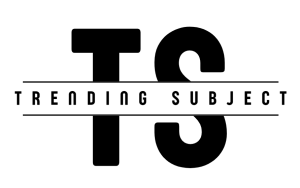Consumer product giant Unilever announced a major restructuring on Tuesday, which will result in thousands of job cuts worldwide and the spinoff of its ice cream unit. The move comes as part of the company’s efforts to become a “more focused” organization and drive growth through increased efficiency and investment in technology.
According to Unilever, the decision to cut 7,500 mostly office-based roles was prompted by the identification of additional cost-saving opportunities under the company’s recently launched productivity program. This program aims to streamline operations and drive growth through a leaner and more accountable organization.
The spinoff of the ice cream unit, which includes popular brands such as Ben & Jerry’s and Breyers, was also announced as part of the company’s efforts to simplify its business model. Unilever stated that ice cream operates on a very different model compared to its other categories, and the separation will allow the company to focus on its “superior brands” and generate more value for shareholders.
The decision to spin off the ice cream business is the latest in a series of steps taken by Unilever to restructure and drive growth. In July 2021, the company announced its growth action plan, which aims to enhance productivity and simplify operations to drive consistent and improved topline growth.
One of the factors behind the spinoff of the ice cream business is the controversy surrounding Ben & Jerry’s. The brand, which has a history of political involvement, announced in July 2021 that it will no longer sell its product in Israeli settlements in the West Bank. This decision caused backlash and led to calls for a boycott of Ben & Jerry’s products. In response, Unilever announced in June 2022 that it had sold the Ben & Jerry’s ice cream operations in Israel in an attempt to reduce controversy. However, the brand’s board will retain its freedom to maintain its stance on Israel.
Unilever’s separation of its ice cream unit will result in the company becoming a “simpler, more focused” organization, operating through four main business groups. The company’s portfolio includes well-known brands in the beauty and well-being, personal care, home care, and nutrition categories, which will continue to be the focus of its operations.
The restructuring plan is expected to deliver total cost savings of approximately 800 million euros (around $870 million) over the next three years. These savings are projected to more than offset the operational dis-synergies resulting from the separation of the ice cream business.
Unilever’s productivity program and spinoff of its ice cream unit are seen as necessary steps to improve the company’s performance and drive growth. With its focus on fewer but more impactful brands and increased efficiency, Unilever is aiming to become a more competitive player in the consumer goods market.
Industry experts believe that while the job cuts may be difficult for affected employees, the restructuring is ultimately in the best interest of the company and its shareholders. Unilever has a long history of successful brand management and a commitment to sustainability and social responsibility, and these moves align with the company’s overall goals and values.
Overall, Unilever’s announcement of job cuts and the spinoff of its ice cream unit are seen as strategic business decisions aimed at improving the company’s long-term performance and strengthening its position in the highly competitive consumer goods market.








